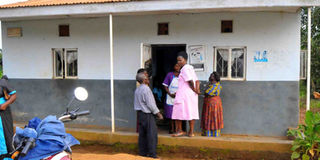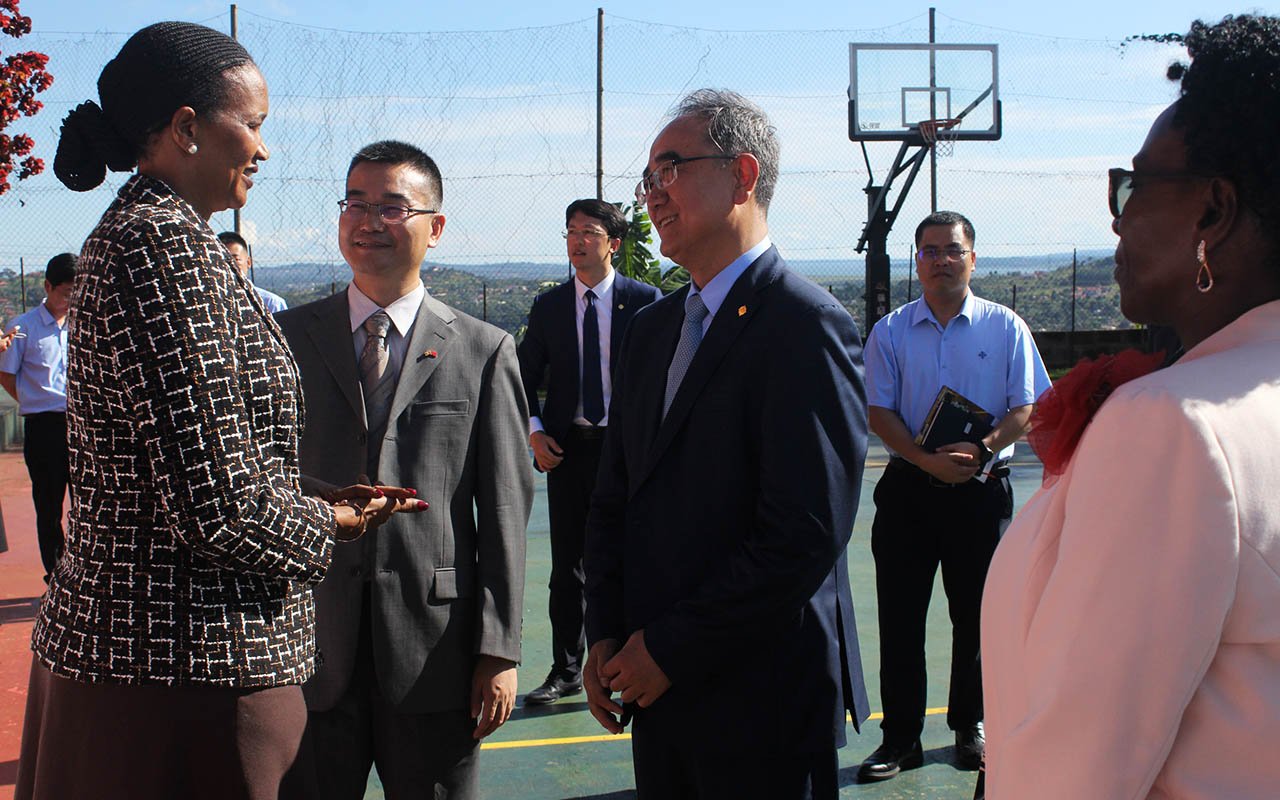97 per cent health workers in Wakiso lack accommodation

Patients seek treatment at Kyengeza Health Centre II in Wakiso District recently. Lack of accommodation for health centre staff has contributed to poor health service delivery in the district since most health workers report late for duty. PHOTO BY JOSEPH KIGGUNDU.
Wakiso- Attraction and retention of health workers in Wakiso District is proving to be an uphill task just like the case in most rural settings countrywide where an overwhelming number have no accommodation and are poorly remunerated.
Some of these distressed health workers have to trek longer distances on a daily basis to access their respective health centres, while others have to pay exorbitantly to rent accommodation.
Uganda as a country is crippled by medical brain drain that has seen the country’s top cream leave for greener pastures.
Lack of a political will by the government to attract and retain the few health workers left behind through better remuneration has hampered the process of building a resilient and a responsive health system.
As the country continues to lay strategies to salvage its sick health sector, authorities in Wakiso District have revealed that they can only provide accommodation to 27 (3.07 per cent) health workers out of the 877 the district employs.
This implies that a total of 850 (96.93 per cent) health workers in the district commute to their work stations daily.
Lack of accommodation for health workers contributes to staff absenteeism and shortage in the sector.
According to Mr Robert Kagwire, the acting Wakiso District director of health services, lack of accommodation for health centre staff has contributed to poor health service delivery in the district since most health workers report late for duty.
“In distant sub-counties of Busukuma and Namayumba, health workers trek unbelievably long distances to and from work each day. This really affects their productivity as they arrive at work tired, stressed and probably late,” he said in an interview with this newspaper recently.
Mr Kagwire explained that as a district, they are laden with the limited funding and the continuous budget cuts they suffer from the central government in each given financial year.
Although Wakiso District is destined to receive Shs50.6b from government in the Financial Year 2017/18 to finance its recurrent expenditure and development projects, Mr Kagwire said the money is still little compared to the district’s needs.
He said currently, his directorate cannot undertake an effective supervision of the health services as they lack adequate fuel to move around health centres in the district.
“A combination of factors has left the health workers demotivated to the detriment of our people who are in dire need of health services. Poor remuneration and lack of housing are some of the serious issues that need to be addressed,” Mr Kagwire said.
According to the Health Sector Performance Report 2013/2013, 40 per cent of health workers countrywide are rarely at their workstations.
The report cited district hospitals and lower health units as the most affected.
According to the report, the most quoted reasons for absenteeism were poor pay, poor working conditions and study leave.
Health workers earn between Shs2 million and Shs400,000 depending on one’s qualifications and position held at the district.
Another study of health workers from developing countries carried out in 2011 revealed that 55 per cent of health workers surveyed responded that inadequate housing or transport, as well as delayed pay, were also among the reasons they missed work.
Mr Ahmed Sekyanzi, a councillor representing Seguku Ward in Ndejje Division, Makindye/ Ssabagabo Municipality, said government should consider Wakiso as a special case in terms of funding given its skyrocketing population compared to other districts in the country.
“At this stage, government should pay special attention to our district’s budget. Sectors such as health, water, sanitation and education should be well facilitated like it does in Kampala,” he said.
Mr Sekyanzi added: “There is no way we can achieve a middle income status in a country where residents are sick and cannot access good health care at public health facilities.”
Mr Matiya Lwanga Bwanika, the Wakiso District chairperson, said in the ending Financial Year 2016/2017, government allocated them only Shs.1.38b for essential medicines yet the district needed Shs4.46b.
“That is why rampant drug stock-outs, especially in the semi urban health facilities, have continued to exist due to high essential medicines financing gap,” he said.
Mr Kagwire also revealed that the district only has one functional ambulance based at Entebbe Hospital.
“The rest of what we call ambulances are dilapidated Nissan pick-up trucks that were mounted with sirens and lights,” he said.
While the majority of households in Wakiso District can access health facilities within a radius of 5km, there are still parishes without any public health facility,” Mr Kagwire added.
To overcome the harrowing challenges, Mr Kagwire said his department will continue to lobby government for increased healthcare financing and provision of desirable working environment coupled with attractive retention packages for the health workforce.
He said the district has also zoned its health outreaches into eight sub-districts to improve health service delivery.
The sub districts include Entebbe Municipality, Kyadondo North (Nansana Municipality), Busiro South, Busiro North, Busiro East, Kyadondo East, Makindye Municipality (Kyadondo South) and Kira Municipality. All these have levels two to four health facilities.
Wakiso District has a total of 1,520 health units out of which 70 are government owned and 38 run by non-profit making agencies. There are also 347 licensed pharmacies, 1,649 drug shops and 1,411 medical centres, clinics or maternity homes.




